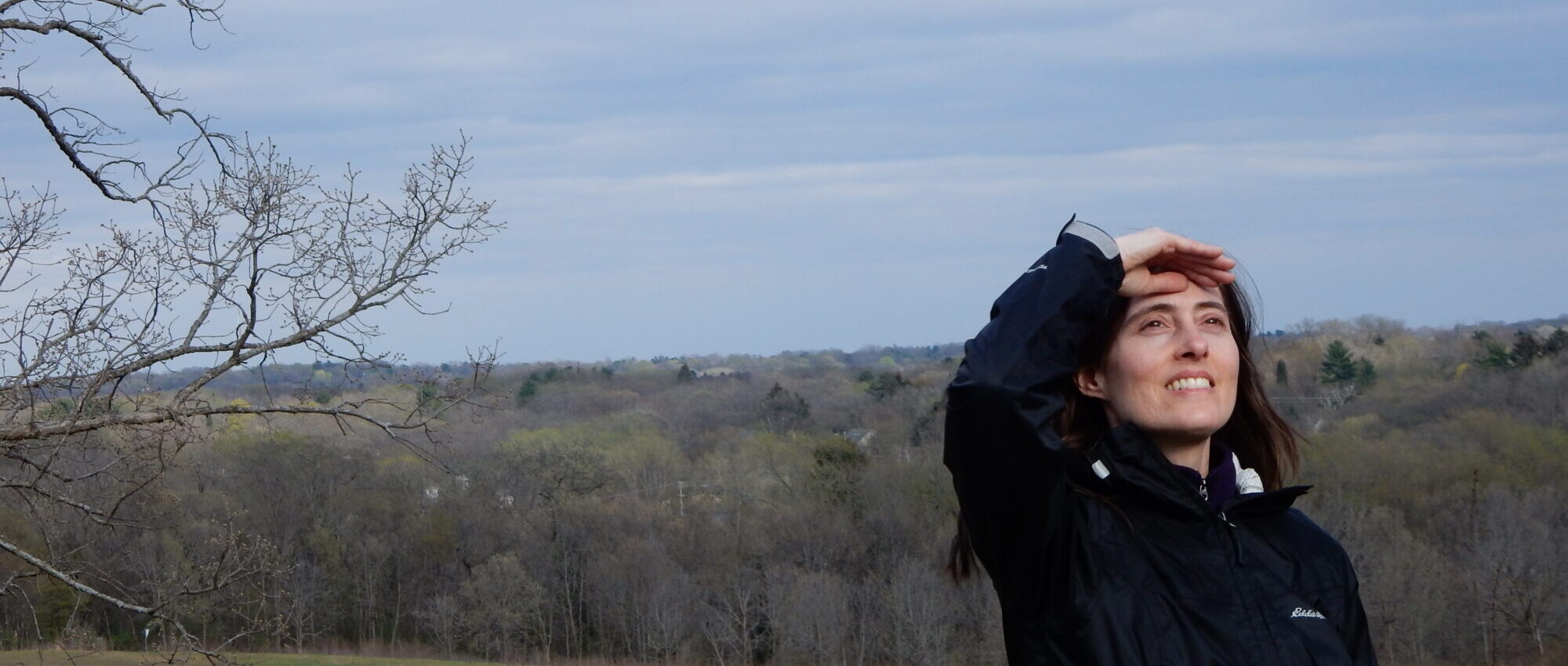At about three in the afternoon, on a too-hot mid-June day here in Madison, it turned dark as dusk. The wind picked up hard, rain lashed our roof, and the tall shagbark hickories surrounding our house began tipping this way and that, shedding branches and leaves like giddy dogs shed water. My computer screen flickered—I was in the middle of a writing project, fingers hovering over my keyboard—and the electricity went out.
“Are you okay?” I called to my husband working upstairs. “Flashlight?” he answered. “Tornado?” I replied.
But by the time we found a couple flashlights, the brief spat of rain and high winds had stopped. The daylight returned to normal levels—our electricity did not.
The power company’s calm, disaffected voice-recording told us to “plan for an extended period without power.”
“How ‘extensive’?” I asked my husband, using air quotes for emphasis.
We’d recently finished watching the post-apocalyptic TV series Station Eleven. Within a few days of that story’s disaster, the dead were everywhere. So my pandemic-affected, climate-change sensitized brain quickly shift into apocalypse mode.
I looked at our refrigerator. How long did we have before food would spoil?
My husband and I picked up our phones. Who should we call first?
Our moms. Then we’d order pizza.
Turns out “extensive” wasn’t all of Madison—just 19,000 households. Still, a lot of people. But not apocalypse level. The teen I talked with at Glass Nickel Pizza, a little over a mile from us, was oblivious. It hadn’t even rained over there. The pizza ovens were just fine.
We ate half our pizza for dinner, gave the other half to my sister’s family a few blocks away. We chatted with neighbors. And went for a walk like we do every day, this time more mindful of the light than usual.
The sun had come out again and we were keenly aware it was lowering. We’d been on walks like this often in the late afternoon, though rarely gave the sun’s position in the sky a second thought. Yet people had lived by the sun, without electricity, for hundreds of thousands of years. Most of recorded history.
I reached for my husband’s hand as we turned a corner towards our darkening house, feeling the urgency and predictably of natural light moving through us. Had we done enough so far that day? Was there enough time for it all? There was so little left of the light. Yet we felt less worried about hurrying to finish, too. We had turned our phones off. Our electric clocks weren’t working and we didn’t mind. When we returned home we found matches, sat in comfortable chairs in front of our powerless TV, then settled in to read by candlelight.
And when the power kicked in late in the evening, we didn’t turn the lights back on.


